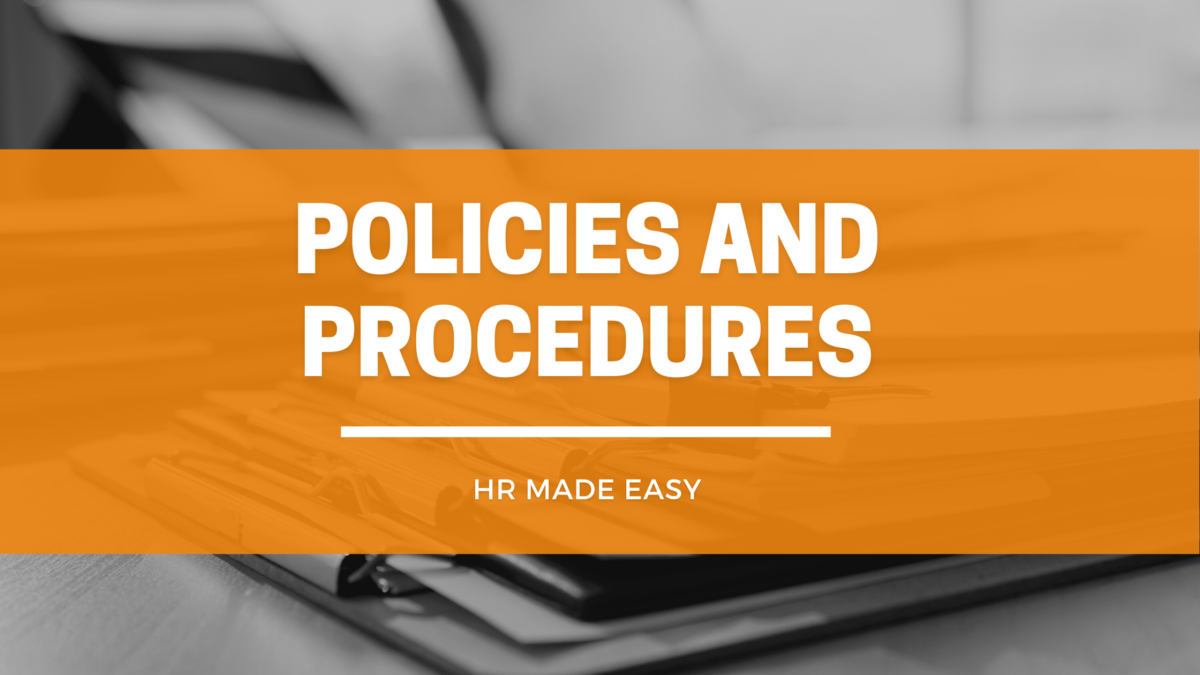Searching Employee Belongings Appropriately
 Many employers have experienced theft by an employee in the workplace and, consequently, need to put certain measures in place in order to protect the profits of the company. It is the policy of some companies to search employees’ personal belongings when they are leaving the work premises. Employers can also reserve the right to search employee lockers and vehicles if this is agreed with the employee in advance.
If the employer wishes to have the option to carry out personal searches then it is crucial that all details surrounding these searches are clearly communicated to the employees in the contract of employment. Employees sign this contract and by doing so agree to the policies and procedures contained therein.
If an employer reserves the right to search an employee’s belongings then he or she must do so in a dignified manner – giving the employee appropriate levels of privacy. There are several significant procedures to observe when performing a personal search. The individual carrying out the search should be in a management position and, in the interest of clarity; the employees should be made aware in advance who it will be.
The location of the search is also something that should be considered very carefully – it is important to maintain consistency and to carry out searches in an area that offers privacy to the employee involved. Employees should be notified of the location of the search and, ideally, it should be out of the view of customers and other employees. The shop floor is not appropriate search setting – the canteen is not suitable either.
Ideally the area should be covered by CCTV in order to prevent a “he said she said” situation from arising. If this is not possible then a witness should be present so that this scenario is avoided. Either way discretion is of cardinal importance.
Many employers have experienced theft by an employee in the workplace and, consequently, need to put certain measures in place in order to protect the profits of the company. It is the policy of some companies to search employees’ personal belongings when they are leaving the work premises. Employers can also reserve the right to search employee lockers and vehicles if this is agreed with the employee in advance.
If the employer wishes to have the option to carry out personal searches then it is crucial that all details surrounding these searches are clearly communicated to the employees in the contract of employment. Employees sign this contract and by doing so agree to the policies and procedures contained therein.
If an employer reserves the right to search an employee’s belongings then he or she must do so in a dignified manner – giving the employee appropriate levels of privacy. There are several significant procedures to observe when performing a personal search. The individual carrying out the search should be in a management position and, in the interest of clarity; the employees should be made aware in advance who it will be.
The location of the search is also something that should be considered very carefully – it is important to maintain consistency and to carry out searches in an area that offers privacy to the employee involved. Employees should be notified of the location of the search and, ideally, it should be out of the view of customers and other employees. The shop floor is not appropriate search setting – the canteen is not suitable either.
Ideally the area should be covered by CCTV in order to prevent a “he said she said” situation from arising. If this is not possible then a witness should be present so that this scenario is avoided. Either way discretion is of cardinal importance.
 As is procedure with airline security screening a male should search a male and a female should search a female, although, as the searches
should not involve body contact this is less of a priority. It is essential
that the employee is asked to open his or her bag, for instance, and that the person performing the search doesn’t breach privacy by putting their hands into the employee’s bag or on the employee’s person.
Employees should be asked politely to remove any suspicious items from their bag for further inspection – the item/items should be placed on a clear surface in order to ensure that there is no confusion over what was actually in the bag. The searching employee (management/security where possible) should never assume that an item has not been paid for. If the item in question was from the store then the employee should be asked to produce a
receipt for same.
Further action can be taken if the employee cannot furnish proof of purchase. When an employee purchases an item in the store during the working day it is good practice for companies to put in place a policy where the bag is sealed and the receipt is attached to the bag. This removes any ambiguity.
Some companies will carry out spot checks on employee belongings rather than checking them on a daily basis – it is vital to be fair and to ensure that the same employees are not targeted all the time.
Not following appropriate procedures can lead to employees being awarded large sums of money.
As is procedure with airline security screening a male should search a male and a female should search a female, although, as the searches
should not involve body contact this is less of a priority. It is essential
that the employee is asked to open his or her bag, for instance, and that the person performing the search doesn’t breach privacy by putting their hands into the employee’s bag or on the employee’s person.
Employees should be asked politely to remove any suspicious items from their bag for further inspection – the item/items should be placed on a clear surface in order to ensure that there is no confusion over what was actually in the bag. The searching employee (management/security where possible) should never assume that an item has not been paid for. If the item in question was from the store then the employee should be asked to produce a
receipt for same.
Further action can be taken if the employee cannot furnish proof of purchase. When an employee purchases an item in the store during the working day it is good practice for companies to put in place a policy where the bag is sealed and the receipt is attached to the bag. This removes any ambiguity.
Some companies will carry out spot checks on employee belongings rather than checking them on a daily basis – it is vital to be fair and to ensure that the same employees are not targeted all the time.
Not following appropriate procedures can lead to employees being awarded large sums of money.







 Unfortunately, the onus is on the employer to prove that he or she acted in a fair manner - the motives behind his or her decisions will be scrutinised. Everything must be justified.
Unfortunately, the onus is on the employer to prove that he or she acted in a fair manner - the motives behind his or her decisions will be scrutinised. Everything must be justified. 














 The legislation, which is due to be enacted in the autumn, closely reflects best practices in whistleblowing protection in developed nations around the world.
According to Minister Howlin the Bill “should instil all workers with confidence that should they ever need to take that decisive step and speak-up on concerns that they have about possible misconduct in the workplace, they will find that society values their actions as entirely legitimate, appropriate and in the public interest”.
Some key elements included in the Bill are as follows:
Compensation of up to a maximum of five years remuneration can be awarded in the case of an unfair dismissal that came about as a result of making a protected disclosure. This would be a massive step forward in Ireland’s attempt to match the standards set by other established nations.
It is important to note that limitations relating to the length of service that usually apply in the case of Unfair Dismissals are set aside in the case of protected disclosures.
As a result of this Bill whistleblowers will benefit from civil immunity from actions for damages and a qualified privilege under defamation law.
The legislation provides a number of disclosure channels for potential whistleblowers and stresses that the disclosure, rather than the whistleblower, should be the focus of the attention.
Protections for the whistleblower remain in place even where the information disclosed does not reveal any wrongdoing when examined. Deliberate false reporting, however, will not be protected.
These measures, when enacted, should encourage more people to come forward, and feel comfortable doing so, when they become aware of (or suspect) any criminal activity, misconduct or wrongdoing in the workplace.
The legislation, which is due to be enacted in the autumn, closely reflects best practices in whistleblowing protection in developed nations around the world.
According to Minister Howlin the Bill “should instil all workers with confidence that should they ever need to take that decisive step and speak-up on concerns that they have about possible misconduct in the workplace, they will find that society values their actions as entirely legitimate, appropriate and in the public interest”.
Some key elements included in the Bill are as follows:
Compensation of up to a maximum of five years remuneration can be awarded in the case of an unfair dismissal that came about as a result of making a protected disclosure. This would be a massive step forward in Ireland’s attempt to match the standards set by other established nations.
It is important to note that limitations relating to the length of service that usually apply in the case of Unfair Dismissals are set aside in the case of protected disclosures.
As a result of this Bill whistleblowers will benefit from civil immunity from actions for damages and a qualified privilege under defamation law.
The legislation provides a number of disclosure channels for potential whistleblowers and stresses that the disclosure, rather than the whistleblower, should be the focus of the attention.
Protections for the whistleblower remain in place even where the information disclosed does not reveal any wrongdoing when examined. Deliberate false reporting, however, will not be protected.
These measures, when enacted, should encourage more people to come forward, and feel comfortable doing so, when they become aware of (or suspect) any criminal activity, misconduct or wrongdoing in the workplace.




 Redundancies are required to keep a business viable. Make your decisions based on what's best for the business - not because you want to get rid of Danny the storeman
Redundancies are required to keep a business viable. Make your decisions based on what's best for the business - not because you want to get rid of Danny the storeman 